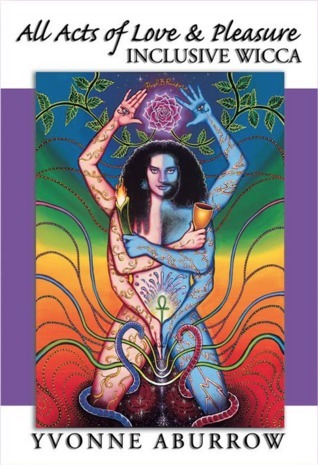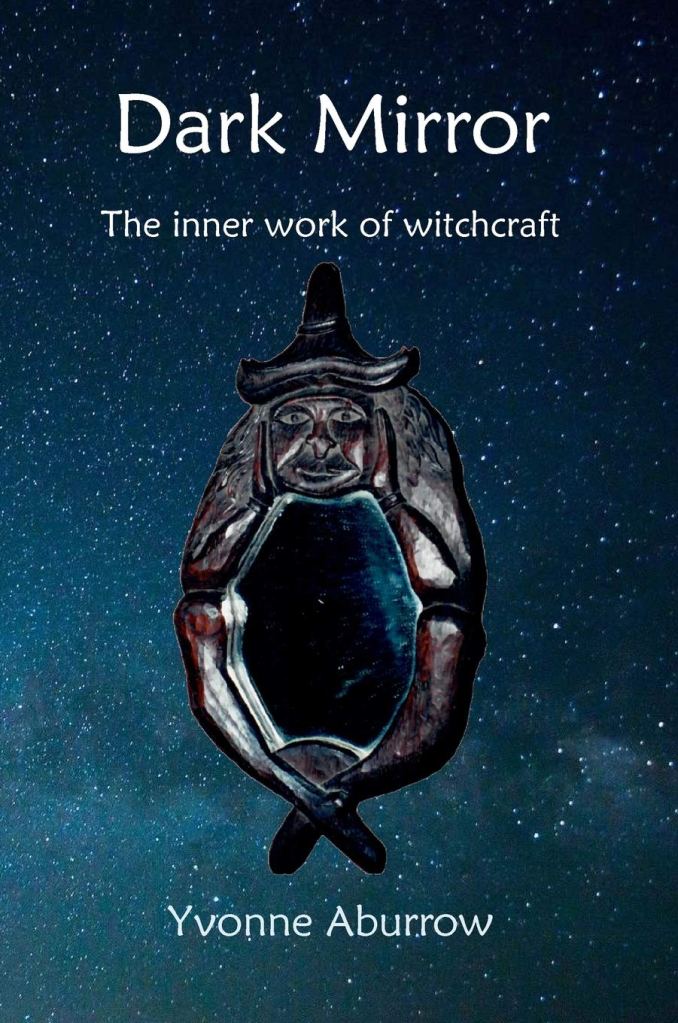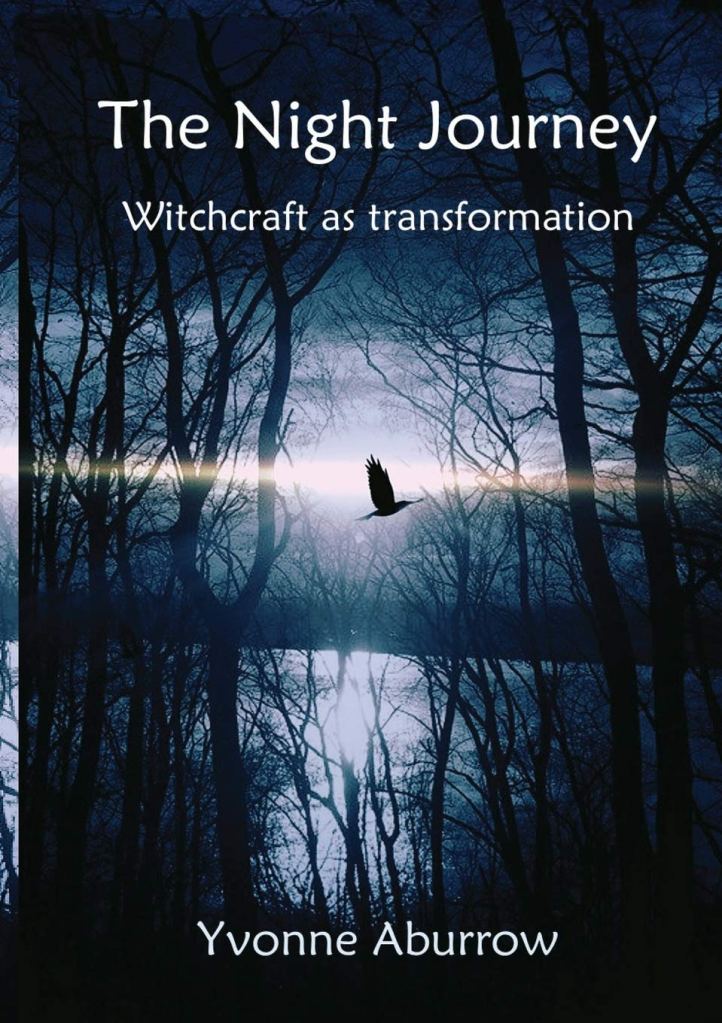What makes you a Pagan? Is it what you believe, what you do, or something else?
Some other religions
Because Christianity is strongly creedal (uniting around a set of beliefs), people tend to assume that all other religions must also unite around beliefs.
However, in Hinduism (a religion which has many similarities to Paganism), there are many different beliefs, ranging from monotheism to monism to polytheism. Rather than uniting around a specific belief, groups of Hindus unite around devotion to a specific deity, guru, or practice.
Unitarian Universalists unite around values, not beliefs. They affirm that a free and responsible search for meaning is up to the individual, and they do not have a creed. That doesn’t mean you can just believe what you like; it means that you have a responsibility to discover your perspective on truth.
Jews don’t ask what you believe; they ask if you’re observant – do you observe the mitzvot (commandments)? The degree to which the commandments are carried out, and how they are interpreted, depends on whether the person is an Orthodox Jew, Reform Jew, or Liberal Jew. But being a religious Jew (as opposed to a cultural or ethnic one) implies some level of observance.
Pagan traditions
It has often been said that Wicca is an orthopraxy rather than an orthodoxy. In other words, most Wiccan rituals include standard practices such as sweeping, casting a circle, consecrating water and salt, calling the quarters, raising power, cakes and wine, and closing the quarters and the circle. However, the beliefs of individual Wiccans can and do include animism, polytheism, atheism, duotheism, polymorphism, and pantheism.
Beliefs also vary within Druidry, so I would argue that what makes you a Druid is performing Druid rituals.
Reconstructionists tend to place greater emphasis on having polytheistic beliefs, but even within that, there is some variation; and the key feature of belonging to a Reconstructionist path is that you work within the mythology of that tradition.
So it appears that what makes you a Pagan is that you identify as Pagan. It could be argued that participating in a Pagan tradition, and being recognised by other members of it as a Pagan, is what makes you a capital-P Pagan rather than a small-p pagan, but that distinction gets a bit blurry when you start talking about solitary practitioners, and people who identify as Pagan among Unitarians in the UK (where there are no CUUPs chapters). Personally, I want to include these two categories as Pagan.
It is possible to identify a few beliefs that most Pagans share, but they are not defining characteristics of Paganism, partly because members of other religions also have these beliefs, and partly because not all Pagans have them. Most Pagans believe in reincarnation; most believe that the Divine and/or deities is/are immanent in the world; most believe that the Divine and/or deities include(s) both male and female. Many Pagans embrace an ethic of environmental sustainability. That’s about it for common beliefs though, so it’s almost impossible to use belief as a yardstick of who is or isn’t Pagan.
Pagans often have a lot of values in common, such as feminism, personal autonomy, making up your own mind about ethics, environmentalism, and so on, but these are not required features of being a Pagan.
Many people have tried to define Paganism as a specific set of beliefs, but you can always find someone who says “I don’t believe that” and yet is still a Pagan. So defining membership of Paganism in general, or any particular Pagan tradition, by beliefs is bound to fail.
Defining Paganism by its values might work better, but it would take a long time to figure out which Pagan values are core values, and which are not. The excellent Pagan Values blogging project, started by Pax, at least describes some Pagan values, but I think it’s fair to say that there is not really a consensus as to what values are specifically Pagan. It’s great that a conversation about Pagan values is happening in the public sphere, though.
You might define Paganism as being about old mythologies, but then what about people who work with newly discovered pantheons? I think being interested in gods and goddesses is a good description of most Pagans – but it depends if you want to include pantheists (who might not be interested in specific deities) under the Pagan umbrella, or not.
Even the proposal to define Pagan traditions as orthopractic is a bit problematic. If someone decides not to cast a circle for their ritual, does that suddenly make them not Wiccan? Not in my book – they probably had a valid reason for choosing not to. I think a shared set of practices is a better basis for describing a religion than either beliefs or values, though.

Will the “Pagan umbrella” survive a storm?
(photo by Eelke Dekker – Wikipedia)
It’s unlikely that anyone will ever come up with a really watertight definition of Paganism that satisfies everyone. I think you can define individual traditions a bit more easily, because they tend to have internal rules about who counts as a member. The problem with the Pagan umbrella is that if you pull it down on one side to give shelter to one group, you end up letting the rain in on another group that is excluded by your new definition.
You can describe Paganism as generally including a particular set of values, beliefs, and practices – but it’s very hard to extract a definition from that description.
If you enjoyed this post, you might like my books.



I incline to the “fuzzy logic” approach. This quotation from Raven, writing in alt.religion.wicca.moderated in 2002, sums it up (the approach refers to Wicca, but works just as well for the whole ragged tapestry of Paganism):
“The best attempt I’ve seen at a definition that *works* — by which I mean it *includes* what most people include, and *excludes* what most people exclude — was the “orthopraxis” definition in Widdershins, the summer 1995 issue, which uses a checklist of ritual practices (casting the circle, calling the quarters, drawing down the moon, cakes and ale, etc.) so that the more items are checked, the more something qualifies as “Wicca”. This is a “fuzzy logic” approach, which is very appropriate to such a fuzzy-bordered religion-cluster.”
(That 1995 issue of Widdershins Magazine was the one which included Sylvana SilverWitch’s much-quoted interview with Fritz Muntean in which he characterizes Wicca as a religion of orthopraxy.)
LikeLike
I like the fuzzy logic approach – I think that is sort of what I was heading towards in my post – the more of these boxes are ticked, the more it looks like Paganism. I wouldn’t use a list of Wiccan things to try to characterise Paganism in general, though (but I don’t think that’s what you’re proposing, just the fuzzy logic approach?)
LikeLike
The problem with trying to define membership in paganism boils down to the way it perpetuates the illusion that paganism is itself a thing, rather than a largely catch-all category for “none of the above” religions.
What makes me pagan is that my religion(s) fall in the particular none-of-the-above category bucket that is commonly called “modern paganism”.
LikeLike
Agreed that Paganism is not a thing, but I think the fuzzy logic approach suggested by Katy works – does the tradition or person characterised as Pagan do some of the following? (and the more boxes are ticked, the more p/Pagan they are): believe in immanence of deities / the Divine? believe in female aspects or deities [1] as well as male? reverence Nature and/or feel a connection with the land? worship many deities? identify as Pagan? belong to a tradition characterised as Pagan?
[1] note that I don’t mean that aspects and deities are interchangeable here – I am just allowing for monism and pantheism as well as polytheism
LikeLike
I once spent an afternoon taking the Beliefnet faith quiz (before you had to sign up for a newsletter to get it), varying the answers I entered. It came down to their only defining point that made you Pagan was simply that you revered nature, and did not believe that nature only existed to serve man.
LikeLike
Really? Wow, I noticed that the questions were biased towards Christianity-related ideas, but that is ridiculous. However, it did claim that it was matching your answers against those given by people of various religions who had taken the test.
LikeLike
I always come up Unitarian on that Beliefnet quiz! And actually, that does seem to be a defining point, that I am unitarian, and Goddess-centered only. Does that make me a sort of Pagan lite? 🙂
LikeLike
Unitarian Universalist usually comes quite near the top for me on that quiz as well. If you want to identify as Pagan, then I want to include you. Also, lots of Unitarians (UK, Canada) and Unitarian Universalists (USA) identify as Pagan. I want to include them too.
LikeLike
I first identified as a pagan because it ‘felt’ right. My continuing identity as a pagan is about my experiences rather than specific beliefs or practices. So I would argue for the experiental as the main definer of what it means to be pagan.
LikeLike
Experiential sounds good to me 🙂
LikeLike
Yvonne, you make some good points here, but personally, I’m done trying to define Paganism. It seems like every time I try, I get hammered because I either left out something someone thought was critical or (more frequently) I included something some Pagan doesn’t want to be associated with.
Definitions involve drawing boundaries, declaring some things “in” and others “out”. I prefer to think of Paganism as a movement. Movements don’t have boundaries – they have centers and directions. You need not be right on top of the center or headed in the exact same direction as everyone else to be part of the movement.
Of course, that raises the question of what our center is. I think there are three: a reverence for Nature, Goddess spirituality, and a resonance with our pre-Christian ancestors (to include polytheism). It also raises the question of what our direction is. I’m much less certain about that… my first impulse is to say “away from the mainstream culture”. I don’t know that’s a _good_ direction, but it’s _a_ direction.
In the for what it’s worth department, I stole the “center and direction” idea from an Evangelical blogger. Apparently Evangelical Christians are having a very similar argument with no better resolution than we Pagans.
LikeLike
Did I, anywhere in my post, actually try to define Paganism? 🙂 No, I just pointed out all the problems with existing attempts to define it.
I think your ideas of core and periphery, and movement in a particular direction, are very helpful.
LikeLike
Yvonne, it is the attempt to define from under the umbrella that gets sticky and problematic. Outside the umbrella, paganism is defined as any tradition or religion which is not of the three monotheist biblical religions. And some fundamentalists will exclude those which are not theirs in that definition, too. And since it is the Catholic Church which coined the term as a religious one, the definition is theirs.
Definition from under the umbrella only makes sense when one accepts that paganism is not singular but is a title for a collection of religions. Within the collection, each religion might have an easier time defining itself more succinctly when left up to each pagan religion to define itself in its own terms. I suspect, ultimately, that one would see degrees of definition akin to the categories of Jewish identification- to what degree one carries out the practices, or types of religions akin to the Hindu model, grouping and defining them by which deities are given devotion and develop cults. This seems the most realistic model to me.
However, your assertion that reconstructionists tend to the orthodox surprised me because many (but not all!) I have heard in such discussions prefer to identify through orthopraxy, claiming that participation in the cultural rites and sacrifices makes one a reconstructionist even when all those participating conceive of the deities in their own manner; hence, orthodox belief isn’t a requirement to participate in collective rites.
LikeLike
Glad to hear that about reconstructionists – my experience was with one mailing list some time ago, and is perhaps rather out of date.
I was trying to avoid *defining* Paganism — always a contentious topic — and tried to go about *describing* it instead. The difference (to my mind) is that definition involves trying to define some essential characteristic, which inevitably ends up excluding someone, whereas description attempts to describe what is actually out there in the Pagan landscape, and to include everyone who identifies as Pagan.
I think that definitions such as “non-Abrahamic” are worse than useless, because they inevitably include people who don’t want to be labelled as pagan, such as Hindus and Indigenous Americans. It would also include the New Age, which is not part of Paganism.
LikeLike
I would agree with you that from under the umbrella, it isn’t accurate to include traditions that do not self-identify as ‘pagan.’ However, as it is a church term first, they do include all those traditions and peoples, as non-Abrahamic is basically their baseline definition. I tend to think that many eclectic pagans would include New Age in their eclectic collection and description though; certainly the bulk of pagans out my way in Portland lean heavily on it (one reason why I don’t identify with them much).
But are you trying to describe a singular tradition, or a variety of traditions? Attempting to conceive of paganism singularly just doesn’t make sense to me.
LikeLike
Hi Erin – I try to avoid using the word “paganism” because it tends to imply a singular tradition to a lot of people. I usually refer to “Pagan traditions” (as I find the term “paganisms” rather clunky).
I am not trying to describe a singular tradition. I am trying to identify common characteristics of a number of traditions – but not assuming that they must all have all of the characteristics in order to be described as Pagan.
Including new-agey ideas in one’s Paganism does not necessarily make one New Age.
Ideas that I would characterise as New Age include the Age of Aquarius; the tendency to think that light = good, darkness = bad. Anything to do with crystals, dolphins, and rainbows. The over-use of the word quantum. The failure to acknowledge the “red in tooth and claw” aspects of Nature (alongside the cute bunnies etc.). Cultural appropriation and taking things completely out of context. Being “spiritual but not religious”.
LikeLike